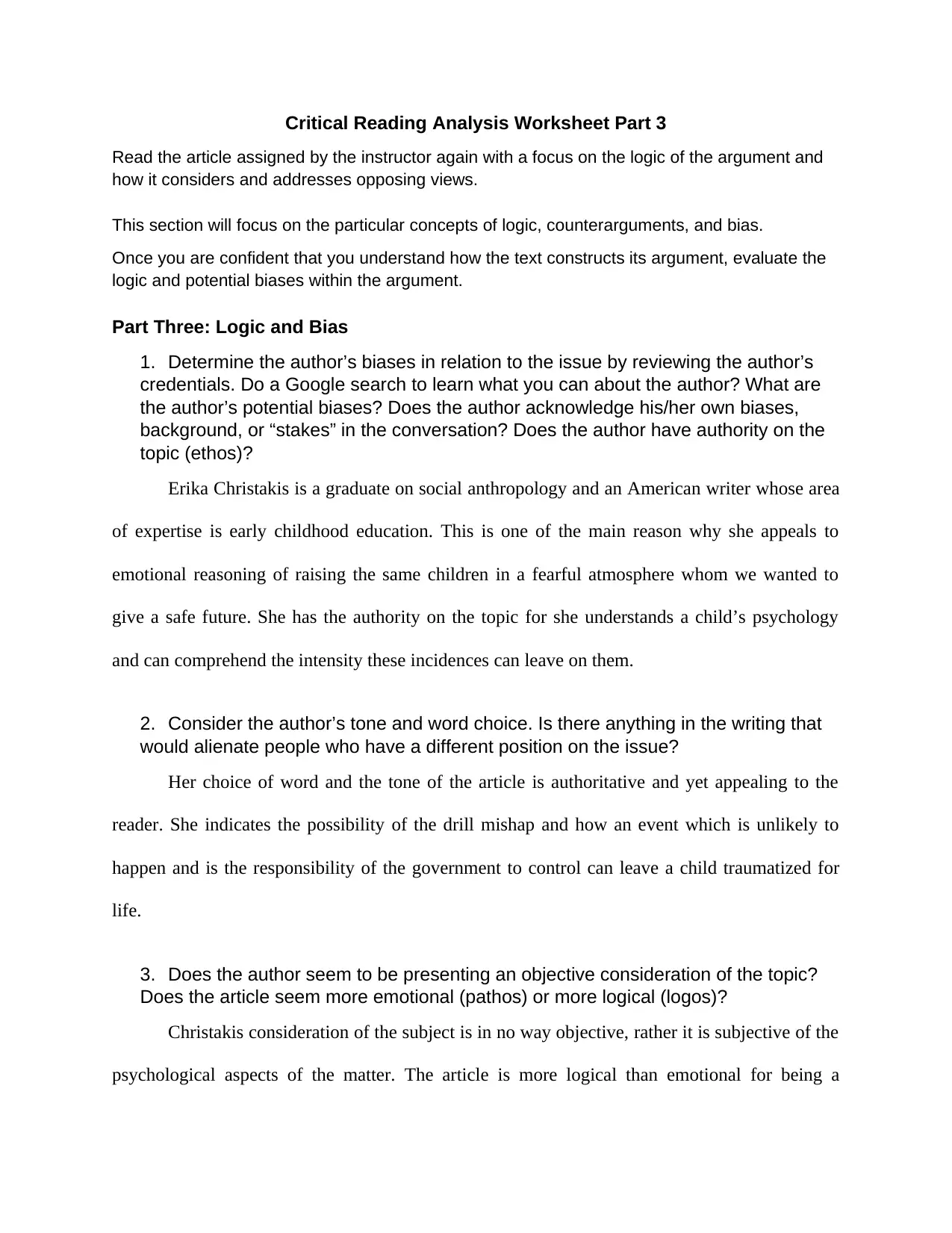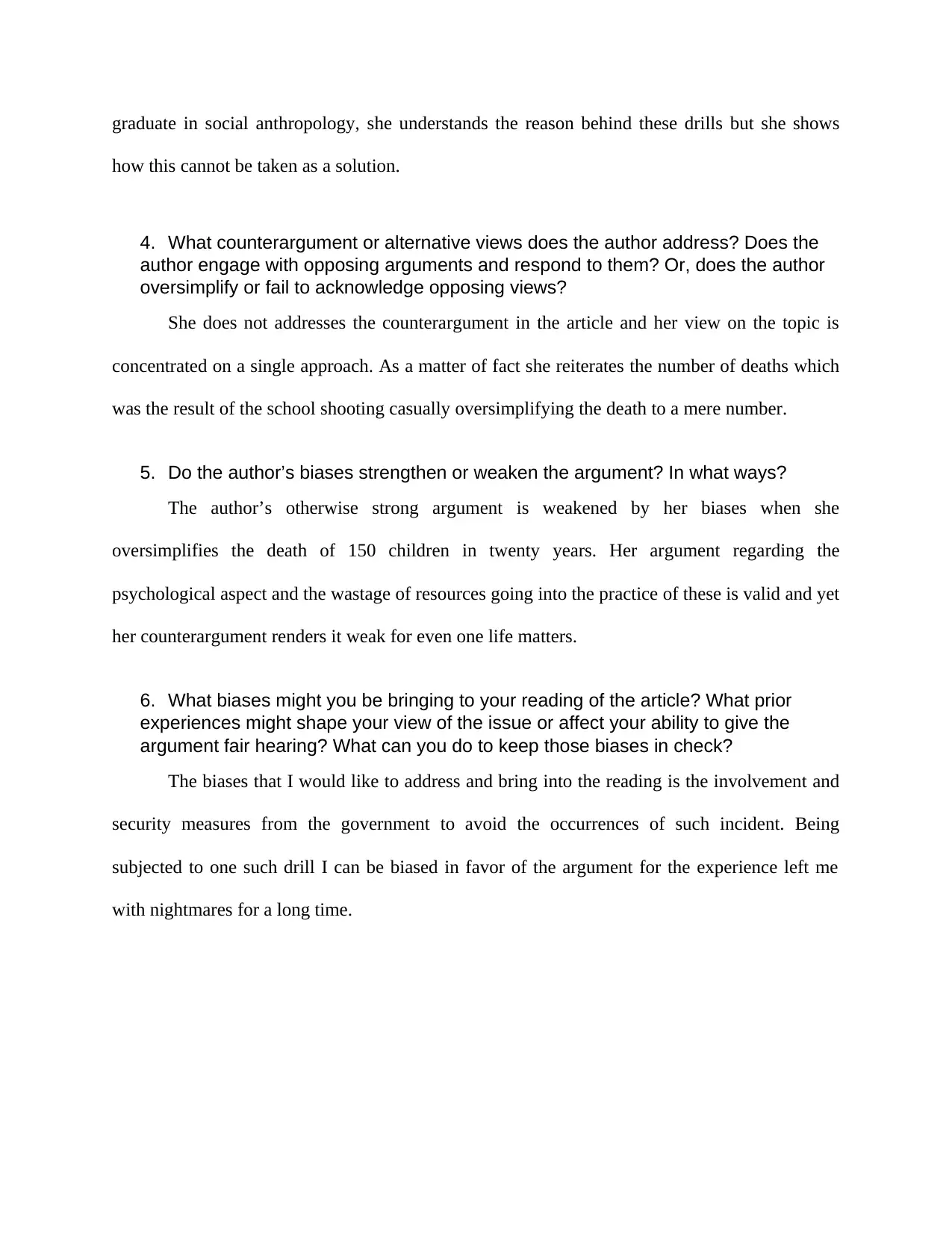Critical Reading Analysis: Evaluating Logic and Bias in an Article
VerifiedAdded on 2022/08/12
|2
|669
|31
Report
AI Summary
This report provides a critical reading analysis of an article, focusing on the logic, biases, and counterarguments presented. The analysis begins by examining the author's credentials and potential biases, including their expertise in early childhood education and their use of emotional reasoning. The report then assesses the author's tone, word choice, and whether the argument is more emotional or logical. It also evaluates how the author addresses opposing views, noting that the author does not directly address counterarguments. The analysis concludes by considering how the author's biases strengthen or weaken the argument, particularly the oversimplification of the impact of school shootings. The report acknowledges the reader's potential biases and emphasizes the importance of maintaining objectivity. This analysis provides a comprehensive overview of the article's strengths and weaknesses, offering insights into the complexities of the argument.
1 out of 2


![[object Object]](/_next/static/media/star-bottom.7253800d.svg)